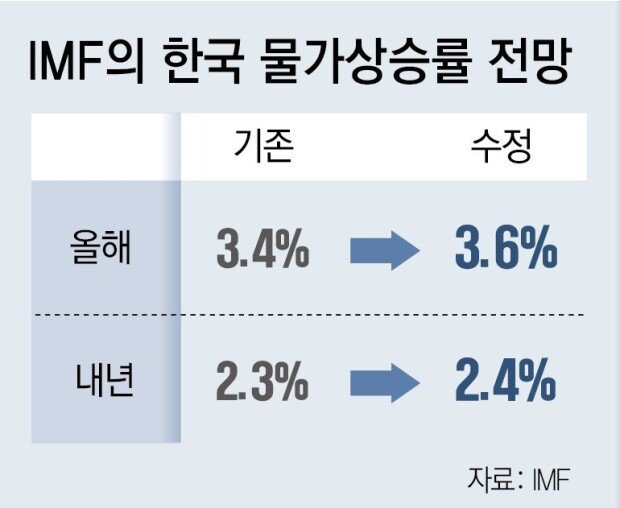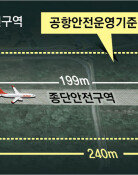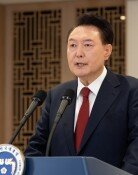IMF raises Korea's 2023 inflation forecast to 3.6%
IMF raises Korea's 2023 inflation forecast to 3.6%
Posted November. 18, 2023 08:57,
Updated November. 18, 2023 08:57

The International Monetary Fund (IMF) has raised its inflation forecast for Korea this year to 3.6 percent from 3.4 percent. This adjustment is attributed to increased uncertainty in commodity prices, such as rising oil prices. In response, the government has launched an all-out investigation into the rampant price hikes companies are secretly engaging in.
According to the Ministry of Economy and Finance, the IMF concluded its 2023 Article IV Consultation with Korea and projected a 3.6 percent inflation rate for the country this year. This figure is 0.2 percentage points higher than the 3.4 percent forecast in its October World Economic Outlook. Additionally, the IMF increased its inflation forecast for the next year by 0.1 percentage point to 2.4 percent from 2.3 percent.
The outlook reflects the heightened volatility of commodity prices, driven by escalating tensions in the Middle East and the surge in international oil prices. In its November issue of Economic Trends (Green Book) released on Friday, the Ministry of Economy and Finance also assessed that “Uncertainty persists, including volatility in commodity prices due to the war in Ukraine and instability in the Middle East.” The consumer price inflation rate fell to 2.3 percent in July before rising to 3.8 percent last month.
The IMF forecasts that inflation will slow and reach 2% by the end of next year, aligning with the Bank of Korea's 2% inflation target. However, the IMF recommended maintaining the current high-interest-rate position and avoiding hasty monetary policy easing.
The government is initiating a 'war on inflation' through a series of measures as inflation continues to rise. On the same day, First Vice Minister Kim Byeong-hwan of the Ministry of Economy and Finance convened a vice minister-level meeting of relevant agencies to discuss inflation. He announced that an investigation into 'shrinkflation,' where companies reduce the quantity of products while maintaining the same price, will be conducted by the end of this month. The government aims to scrutinize whether companies have reduced the quantity of essential daily necessities.
The government, led by the Korea Fair Trade Commission, also plans to implement measures for better sharing information on the price per unit of a product. The goal is to make it more intuitive for consumers to recognize pricing gimmicks where, despite the appearance of an unchanged price, companies have sneakily reduced the product's capacity. Shrinkflation has been occurring since last year when prices began to rise steeply.
The government also announced detailed price measures per item on the same day. It plans to continue applying reduced tariffs next year for dyes, raw silk, potatoes, and modified food starch. As for eggs, the government intends to encourage producers to promptly reflect supply and demand conditions in official prices while enhancing the system through joint markets and online wholesale platforms.
"There are many concerns about unfair price increases through volume reductions," Vice Minister Kim said. "The government strongly recognizes this situation as it involves dishonest sales practices that can undermine consumer trust."
1am@donga.com






